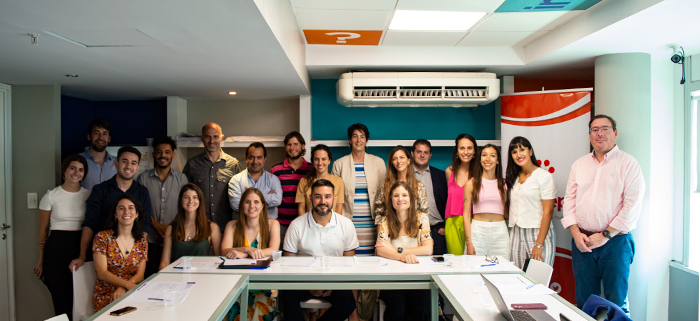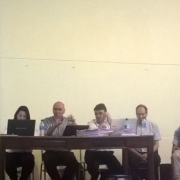A dialogue on food programs, public purchases and the Law for the Promotion of Healthy Eating
Last Thursday, November 17, we held a meeting on the current management of food programs for school canteens in the provinces of Mendoza, Córdoba, Salta, Tucumán, and Buenos Aires. Special emphasis was placed on food purchasing systems and on the need to guarantee the effective application of Law No. 27,642 on the Promotion of Healthy Eating (PAS) within the framework of school assistance programs in each of these provinces. The event was organized by Fundeps, Nuestra Mendoza, Andhes, Salta Transparente, the Center for the Implementation of Constitutional Rights (CIDC) and also had the support of SANAR.
“Below, we offer a google translate version of the original article in Spanish. This translation may not be accurate but serves as a general presentation of the article. For more accurate information, please switch to the Spanish version of the website. In addition, feel free to directly contact in English the person mentioned at the bottom of this article with regards to this topic”.
In addition to representatives of the aforementioned civil society organizations, the following participated in the meeting: Claudia Oliva and Victoria Lo Valvo, General Director of the Comprehensive Assistance Program of Córdoba (P.A.I.Cor) and Director of Legal Affairs of the General Directorate of Purchases of Córdoba ; Franco Pullido and Gabriel Sciola, Director of School Feeding of Mendoza and Undersecretary of Administration of the General Directorate of Schools of Mendoza and Matías Molina, General Director of Monitoring of Procurement of Goods and Services of the province of Salta.
At first, through a participatory dynamic, the different representations and social images linked to chronic non-communicable diseases and, specifically, malnutrition due to excess and the commonly known “law of labeling” were addressed. Then the different components of said law were described and, finally, the provisions related to public purchases for school canteens were studied in depth.
It was highlighted that, when dealing with purchases for educational establishments, they should guarantee that products with black seals did not enter the schools, whether they were already packaged products or the ingredients used to prepare the food. This, given that products with at least one seal or precautionary legend cannot be offered, marketed, promoted, advertised or sponsored within schools, by virtue of article 12 of the PAS law.
In a second moment, the floor was given to each of the leading people from the provinces, authorities in the event that they were present or from NGOs, so that they could comment on how the management of the food programs was in each one of them, how Food purchases were decided, with what nutritional criteria, if this information was accessible to the public, all with the aim of identifying some common points and windows of opportunities for the effective application of the PAS law.
By way of conclusion, each attendee identified opportunities, challenges and possibilities for articulation between civil society and the State agencies involved.
Authors
Maria Victoria Sibilla
Maga Merlo
Contact
Maria Victoria Sibilla, ninasibilla@fundeps.org







